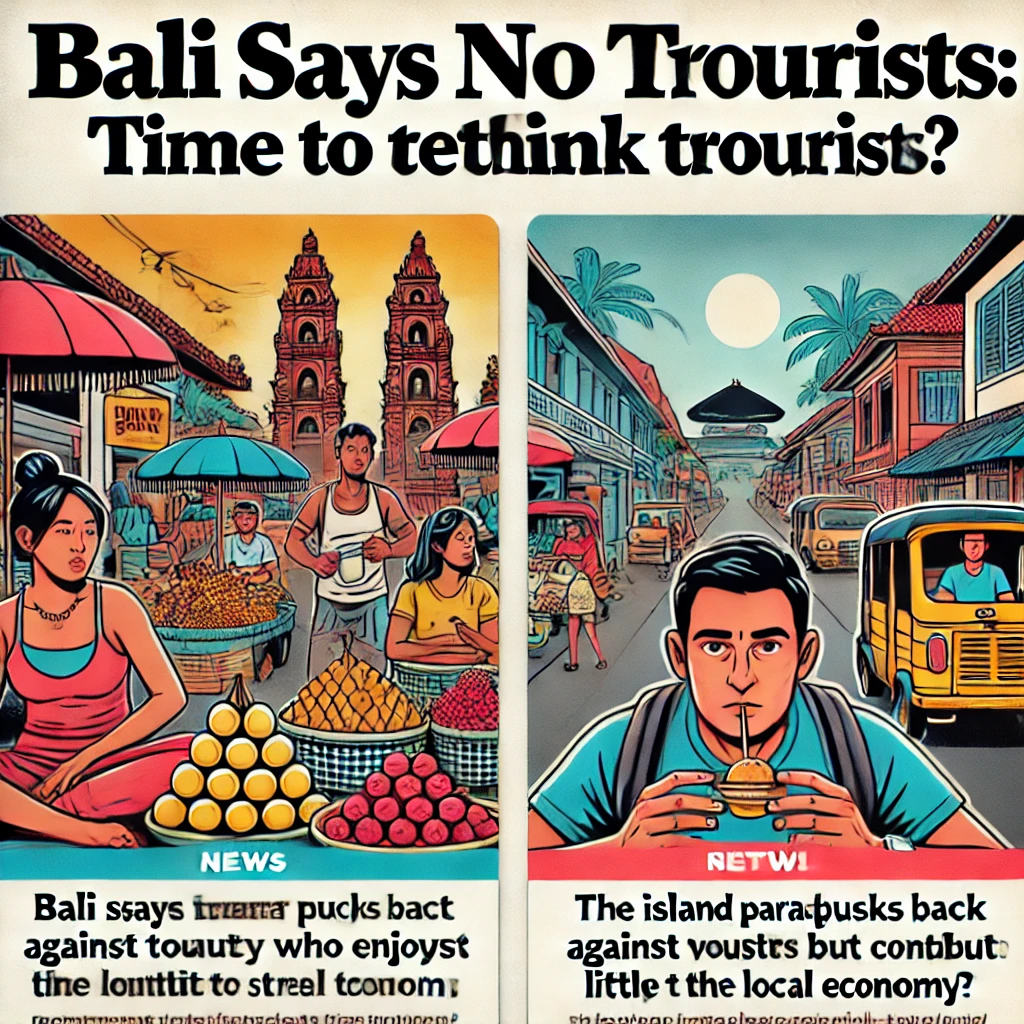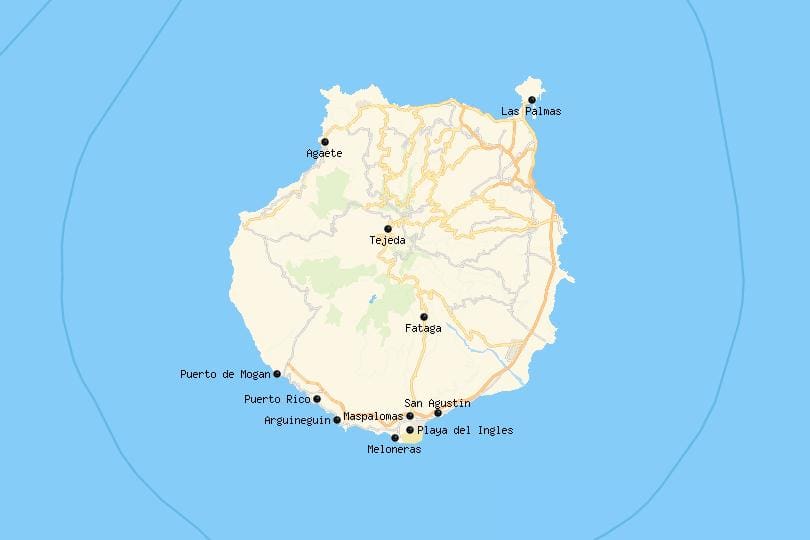In recent years, Bali has emerged as one of the world’s most sought-after travel destinations, attracting millions of visitors annually with its breathtaking landscapes, rich cultural heritage, and affordable lifestyle. However, the island’s growing popularity has come at a cost. Overcrowding, environmental degradation, and cultural insensitivity have sparked widespread frustration among local communities. In response, Bali is now taking a firm stance against “frugal tourists”—those who prioritize ultra-budget travel at the expense of local well-being. This bold move raises important questions about the future of tourism and whether travelers need to rethink their approach to exploring the world.
The Rise of Frugal Tourism in Bali
What Defines a Frugal Tourist?
Frugal tourists are individuals who seek to minimize expenses while traveling. They often:
- Opt for the cheapest accommodations, such as hostels or budget guesthouses.
- Haggle aggressively for goods and services, sometimes below fair market value.
- Avoid paid attractions or activities, preferring free alternatives.
- Rely on cheap imported goods rather than supporting local businesses.
- Engage in behaviors that prioritize personal savings over community impact.
While frugal travel is not inherently problematic, when practiced irresponsibly, it can strain local economies, harm the environment, and disrespect cultural traditions.

Why Bali Became a Magnet for Budget Travelers
Bali’s affordability, combined with its natural beauty and vibrant culture, has made it a haven for frugal tourists. Key factors include:
- Low-Cost Living : Street food, public transport, and inexpensive lodging make Bali accessible even to those on tight budgets. A meal at a warung (local eatery) can cost as little as $1-$2, while motorbike rentals provide cheap and flexible mobility across the island.
- Digital Nomad Appeal : With reliable internet and coworking spaces, Bali attracts remote workers seeking an affordable yet inspiring lifestyle. Cities like Canggu and Ubud are particularly popular among digital nomads who seek both productivity and leisure.
- Social Media Influence : Platforms like Instagram and TikTok showcase Bali as a paradise where luxury-like experiences can be had for a fraction of the cost, drawing thrifty travelers eager to replicate these moments. Viral videos of “$5 massages” or “$10 beachfront dinners” create unrealistic expectations about living expenses, encouraging tourists to adopt penny-pinching habits that may inadvertently harm local businesses.
However, this influx of budget-conscious visitors has created unintended consequences for the island’s residents and ecosystems.
Why Bali Is Saying “No” to Frugal Tourists
1. Economic Exploitation
Frugal tourists often prioritize saving money over contributing fairly to the local economy:
- Underpayment for Services : Many tourists haggle excessively or refuse to tip, undermining fair wages for service staff such as drivers, waiters, and tour guides. For example, refusing to leave tips after dining at a warung can strain relationships with restaurant owners and employees who rely on gratuities for income.
- Avoidance of Paid Attractions : Sacred sites like temples and museums rely on entrance fees for maintenance. When tourists skip these payments, they deprive local authorities of critical funding. For instance, Uluwatu Temple charges an entrance fee to fund security and upkeep; bypassing these charges places additional burdens on local authorities.
- Displacement of Local Businesses : Large chains and international brands catering to tourists often outcompete small, family-run establishments, leaving locals struggling to survive. Farmers and artisans find it difficult to compete with mass-produced, imported goods sold at lower prices.
2. Environmental Degradation
Mass tourism, particularly when driven by cost-cutting measures, has severely impacted Bali’s environment:
- Plastic Waste Crisis : The widespread use of single-use plastics by tourists overwhelms Bali’s waste management systems, polluting beaches and harming marine life. Beaches once known for their cleanliness now suffer from litter left behind by careless tourists.
- Resource Scarcity : Excessive water and energy consumption by hotels and resorts strain already limited resources, affecting agriculture and daily life for residents. Rice paddies, which depend heavily on irrigation, face water shortages due to increased consumption by hotels and resorts.
- Damage to Natural Sites : Popular spots like Mount Batur and Tegalalang Rice Terraces face erosion, littering, and destruction due to overcrowding and irresponsible behavior. Tourists leaving trash along trails and disturbing wildlife exacerbate the problem, prompting authorities to consider limiting visitor numbers.
3. Cultural Insensitivity
Many frugal tourists fail to respect Balinese customs, leading to resentment among locals:
- Disregard for Religious Practices : Entering temples without proper attire or during restricted hours offends devout Hindus, for whom these spaces hold deep spiritual significance. Inappropriate clothing or loud conversations disrupt the sanctity of sacred rituals.
- Misuse of Traditions : Some tourists treat sacred rituals as photo opportunities, reducing them to mere spectacles rather than respecting their cultural importance. Dance performances and cremation ceremonies, integral parts of Balinese life, are sometimes viewed through a lens of entertainment rather than reverence.
- Noise and Disruption : Loud parties, public intoxication, and rowdy behavior clash with Bali’s traditionally conservative values, alienating residents in areas like Canggu and Seminyak. Once quiet fishing villages, these areas now host rowdy nightlife scenes that alienate nearby residents.
4. Rising Cost of Living
Ironically, while frugal tourists aim to save money, their collective presence drives up living costs for locals:
- Skyrocketing Rent Prices : The demand for short-term rentals catering to tourists inflates property values, displacing long-term residents and forcing families to relocate. Villages like Canggu and Ubud have seen dramatic increases in rental rates, forcing many families to relocate.
- Increased Competition for Resources : As more tourists flock to popular areas, essentials like food, fuel, and utilities become pricier for locals, creating financial strain. Farmers struggle to compete with hotels buying bulk produce, leading to higher grocery prices for everyday consumers.
Bali’s Response: A Call for Responsible Tourism
Faced with these challenges, Bali is taking decisive action to curb the negative impacts of frugal tourism and promote sustainable practices.
1. Introduction of Tourist Taxes
In 2023, Bali implemented a mandatory tourist tax aimed at funding infrastructure improvements and conservation efforts. The levy, ranging from $5 to $10 per international arrival, ensures that visitors contribute directly to preserving the island’s natural and cultural assets. Revenue generated from the tax will support projects such as waste management, reforestation, and temple restoration.
2. Visitor Caps and Access Restrictions
To reduce overcrowding and protect fragile ecosystems, certain attractions now impose limits on daily visitors. For example:
- Mount Agung : Restricts climbers to 500 per day to prevent overcrowding and protect its fragile ecosystem.
- Sacred Sites : Temples like Uluwatu require tickets for entry, ensuring funds are allocated toward maintenance and security. These measures help preserve the sanctity of sacred spaces while generating revenue for upkeep.
3. Stricter Enforcement of Rules
Authorities are cracking down on illegal activities, such as unauthorized access to sacred areas and unlicensed tour operations. Penalties include fines, deportation, and bans on repeat offenders. Additionally, stricter regulations on waste disposal and environmental protection aim to mitigate the damage caused by irresponsible tourism.
4. Promotion of Sustainable Tourism
Tourism boards are shifting focus toward promoting ethical travel practices:
- Encouraging Longer Stays : By fostering deeper connections with the community, longer stays allow travelers to immerse themselves in Balinese culture and contribute more meaningfully to the local economy.
- Highlighting Eco-Lodges : Certified eco-lodges and sustainable tourism operators are promoted as alternatives to conventional accommodations. These establishments prioritize environmentally friendly practices, such as renewable energy use and zero-waste policies.
- Advocating for Meaningful Interactions : Programs encourage tourists to participate in traditional ceremonies, volunteer projects, or homestay experiences that benefit local communities.
5. Community-Led Initiatives
Local organizations are playing a crucial role in addressing tourism-related issues:
- Waste Management Programs : Campaigns like Bye Bye Plastic Bags involve youth activists in educating peers and tourists about reducing plastic usage. Recycling initiatives and beach clean-ups help combat the island’s mounting waste problem.
- Cultural Education : Workshops and informational materials help tourists understand and respect Balinese customs and traditions. Signs in multiple languages remind visitors of appropriate dress codes and behavioral guidelines at temples and ceremonies.
- Support for Local Businesses : Initiatives encourage travelers to patronize family-owned establishments, ensuring economic benefits reach grassroots levels. Programs like “Shop Local” highlight authentic markets and artisan workshops, empowering small-scale producers.
What Does This Mean for Travelers?
Bali’s decision to say “no” to frugal tourists signals a broader shift in global tourism trends. Destinations worldwide are increasingly prioritizing sustainability and mutual respect over sheer visitor numbers. For travelers, this means rethinking how we engage with the places we visit:
1. Respect Local Cultures
Before visiting Bali—or any destination—take time to learn about its customs, traditions, and etiquette. Dress modestly, observe silence during prayer times, and avoid treating sacred rituals as entertainment. Simple gestures, such as removing shoes before entering homes or temples, demonstrate respect for local norms.
2. Spend Responsibly
Prioritize supporting local vendors and service providers. Opt for guided tours led by certified professionals, dine at family-run warungs, and purchase handmade souvenirs directly from artisans. Every dollar spent locally contributes to the livelihoods of residents and helps sustain traditional crafts and industries.
3. Minimize Environmental Impact
Adopt eco-friendly habits, such as avoiding single-use plastics, adhering to Leave No Trace principles, and participating in community clean-up efforts. Choose accommodations and activities that align with sustainable practices, such as eco-lodges, organic farms, or wildlife sanctuaries.
4. Be Mindful of Your Footprint
Consider the broader implications of your travel choices. Instead of focusing solely on minimizing costs, think about how you can contribute positively to the communities you visit. For example, volunteering for a local project or attending a cultural workshop fosters meaningful connections and leaves a lasting positive impact.
The Broader Implications: Rethinking Global Tourism
Bali’s stance reflects a growing recognition that tourism must evolve to meet the needs of both travelers and host communities. Here are some key takeaways for the future of global tourism:
1. Quality Over Quantity
Rather than chasing high visitor numbers, destinations should focus on attracting responsible travelers who value quality experiences over bargain deals. This approach benefits both the environment and local economies, ensuring that tourism remains a force for good.
2. Empowering Local Communities
Tourism policies should prioritize empowering residents through job creation, skills development, and equitable distribution of economic benefits. Community-led initiatives play a vital role in achieving this balance, ensuring that tourism dollars flow directly into local hands.
3. Education and Awareness
Travelers must be educated about the impacts of their actions and encouraged to adopt responsible behaviors. Governments, NGOs, and private sector players all have a role to play in spreading awareness. Educational campaigns, signage, and interactive programs can help bridge the gap between tourists and host communities.
4. Technology as a Tool for Sustainability
Smart technologies can optimize resource allocation, monitor environmental health, and enhance visitor experiences without compromising sustainability. For example:
- Apps that track foot traffic at popular sites can help manage overcrowding effectively.
- Digital platforms connecting travelers with local guides and artisans promote direct engagement and economic empowerment.
Conclusion
Bali’s rejection of frugal tourists marks a turning point in the global conversation about sustainable travel. By prioritizing responsible tourism, the island aims to preserve its unique identity and ensure a harmonious coexistence between visitors and residents. For travelers, this serves as a wake-up call to rethink our approach to exploration. It’s no longer enough to simply see the world; we must do so in ways that honor and protect the places we cherish.
As Bali leads the charge toward a more mindful form of tourism, it sets an example for other destinations to follow. The question remains: Will we rise to the challenge and embrace a new era of conscious travel?
Frequently Asked Questions (FAQs)
- Why is Bali rejecting frugal tourists?
- Frugal tourists often exploit resources, underpay for services, and show disrespect for cultural norms, straining local communities and ecosystems.
- What is being done to address overtourism in Bali?
- Measures include tourist taxes, visitor caps, stricter enforcement of rules, and community-led sustainability initiatives.
- How can I travel responsibly in Bali?
- Respect local customs, spend responsibly, minimize environmental impact, and support local businesses.
- Are there eco-friendly accommodations in Bali?
- Yes, many eco-lodges and sustainable resorts operate across the island, offering environmentally conscious options for travelers.
- What are some alternative destinations in Indonesia?
- Consider Lombok, Gili Islands, Komodo National Park, or Yogyakarta for less crowded yet equally stunning experiences.
- How does tourism affect Bali’s environment?
- Mass tourism contributes to plastic waste, resource depletion, and damage to natural and cultural sites.
- What role do digital nomads play in Bali’s tourism issues?
- Digital nomads contribute to rising rent prices and increased competition for resources, though they also boost the economy.
- Can Bali handle its current number of tourists?
- Not sustainably; efforts are underway to manage tourism growth through regulation and infrastructure development.
- How can tourists support local communities in Bali?
- Buy locally made products, dine at family-run warungs, hire local guides, and volunteer for community projects.
- Will Bali lose its charm due to overtourism?
- Without intervention, yes; however, sustainable practices can help preserve its allure for years to come.













